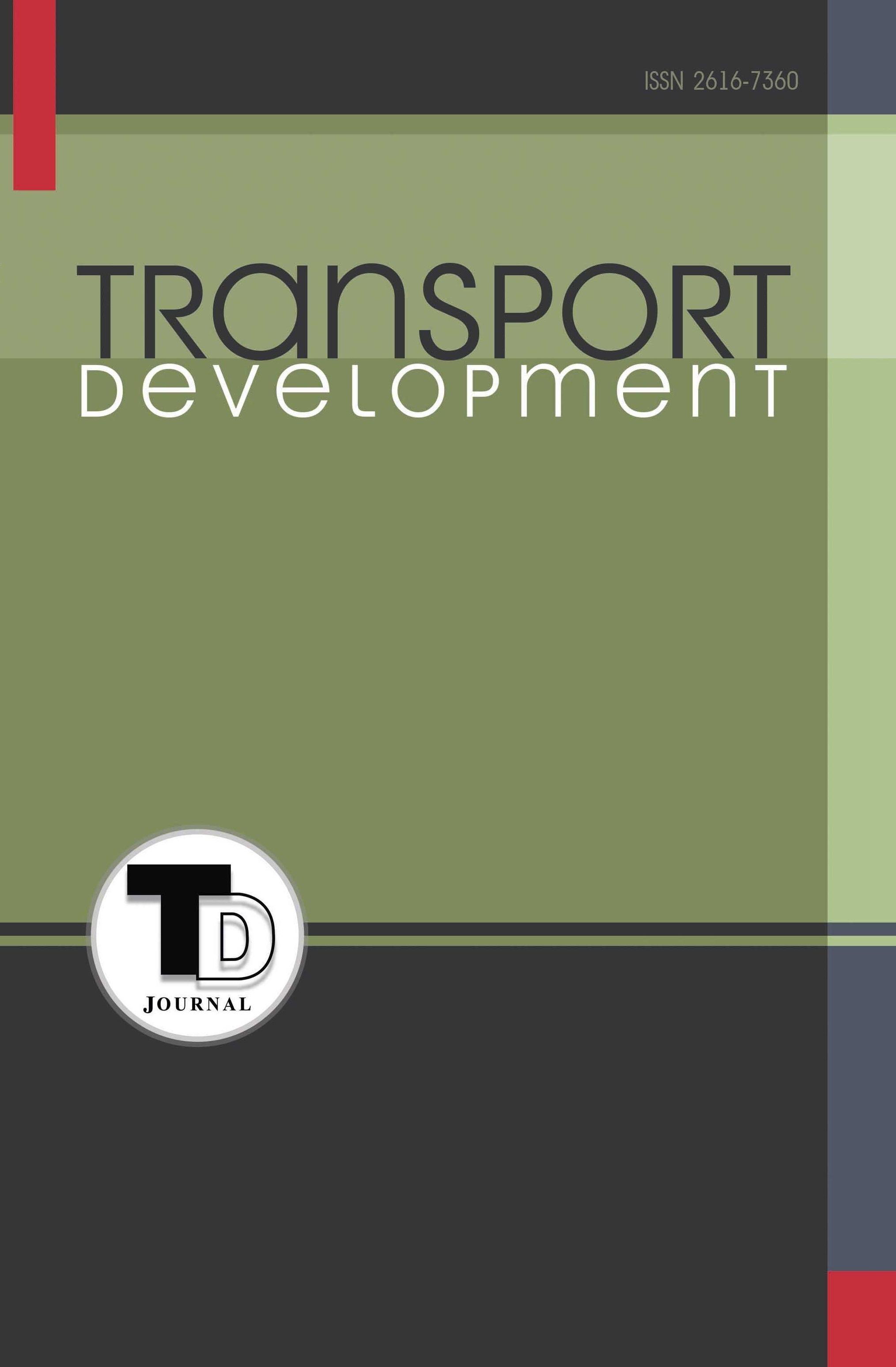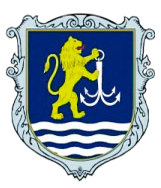EFFICIENCY OF THE “WATER – WATER” HEAT PUMP FOR HEAT SUPPLY OF MACHINE-BUILDING ENTERPRISES IN THE PRODUCTION OF CONSTRUCTION MATERIALS
Abstract
Introduction. The article examines the problem of using a water-to-water heat pump (water-to-water heat pump), which works on alternative energy sources for heat and hot water supply to buildings of engineering enterprises in the production of structural materials. TN “water – water” in its work can use the low-potential heat of water of rivers, lakes, and underground waters. Purpose. The purpose of the work is the thermodynamic substantiation and study of the expediency of using TN at machine-building enterprises in the production of structural materials. Results. An analysis of the thermodynamic characteristics of “water – water” TNs operating with a water source of low-potential heat was performed. The factors that affect the energy efficiency of “water – water” TN are determined, the peculiarities of water TN work for engineering enterprises in the production of structural materials are evaluated. In order to increase the thermodynamic efficiency of the heat supply system of machine-building enterprises in the production of structural materials, a scheme for extracting low-potential heat using the “water – water” TN is proposed. On the basis of the conducted research, it was established that the advantage of water as a heat carrier is that “water – water” TNs can work almost everywhere. Currently, a promising method of increasing the efficiency of the heat supply system of machine-building enterprises in the production of construction materials is the use of “water – water” TN during the annual cycle of its operation. Therefore, the water-to-water heat pump system provides high heat productivity throughout the year and has a higher energy efficiency index compared to traditional installations. TN “water – water” have a significant advantage over other thermal power plants. “Water – water” TNs consume energy from renewable sources, reduce electricity supply costs by more than half. Conclusions. The use of “water – water” TN for the utilization of low-potential heat energy of groundwater is economically beneficial, because the cost of heat supply by a heat pump is UAH 7 980 for a residential building with an area of 100 m2 per year. The analysis of the thermodynamic efficiency of heat supply systems shows that the use of a low-potential source of ground water heat has advantages over ground and air heat sources. In modern economic conditions, the trend of heat supply systems of machine-building enterprises in the production of structural materials can develop in the following directions: the use of vapor-compression TN “water – water”, which has a heat transformation coefficient of 3,15 and an exergy efficiency of TN of 32%, and the use of secondary energy resources of machine-building enterprises in the production of structural materials, as well as possible improvement of the thermal characteristics of machine-building buildings.
Downloads
References
2. Маляренко В.А., Лисак Л.В. Енергетика, довкілля, енергозбереження. Харків : Рубікон, 2004. 368 с.
3. Теплові насоси та їх використання : навчальний посібник / М.К. Безродний та ін. Київ : НТУУ «КПІ», 2013. 312 с.
4. Остапенко О.П. Холодильна техніка та технологія. Теплові насоси : навчальний посібник. Вінниця : ВНТУ, 2015. 123 с.
5. Арсеньєв В.М., Мелейчук С.С. Теплові насоси: основи теорії і розрахунк : навчальний посібник. Суми : СДУ, 2018. 364 с.
6. Босий М.В., Кузик О.В. Теплові насоси для опалення та гарячого водопостачання. Findings of modern engineering research and developments: Scientific monograph. Riga, Latvia : Baltija Publishing, 2022. P. 24–40. URL: http://baltijapublishing.lv/omp/index.php/bp/catalog/book/217.
7. Пісарев В.Є. Теплові насоси та холодильні установки : навчальний посібник. Київ : КНУБА, 2002. 124 с.
8. Теплові насоси в системах теплохолодопостачання : монографія / Ю.Ф. Снєжкін та ін. ; за ред. А.А. Долінського ; НАН України, Ін-т техн. теплофізики. Київ, 2008. 104 с.
9. Безродний М.К., Притула Н.О. Енергетична ефективність теплонасосних схем теплопостачання : монографія. Київ : НТУУ «КПІ», 2012. 208 с.
10. Босий М.В., Кузик О.В. Ефективність циклу теплового насоса для теплопостачання. Центральноукраїнський науковий вісник. Технічні науки. 2020. Вип. 3 (34). С. 136–142. URL: http://dspace.kntu.kr.ua/jspui/handle/123456789/10447.
11. Босий M.В. Термодинамічна енергоефективність геотермального теплового насоса на ґрунтових водах. Moderní aspekty vědy : XX. Díl mezinárodní kolektivní monografie / Mezinárodní Ekonomický Institut s.r.o. Česká republika : Publishing Group “Vědecká perspektiva”, 2022. Str. 556–568. URL: http://perspectives.pp.ua/public/site/mono/monography-20.pdf.
12. Босий М.В. Теплові насоси – енергоефективне відновлювальне екологічне чисте джерело теплоти. Moderní aspekty vědy : XXІ Díl mezinárodní kolektivní monografie / Mezinárodní Ekonomický Institut s.r.o. Česká republika : Publishing Group “Vědecká perspektiva”, 2022. Р. 357–380. URL: http://perspectives.pp.ua/public/site/mono/monography-21.pdf.
13. Ткаченко С.Й., Остапенко О.П. Парокомпресійні теплонасосні установки в системах теплопостачання : монографія. Вінниця : ВНТУ, 2009. 176 с.
14. Термодинамічна енергоефективність парокомпресійного теплового насоса на грунтових водах / М.В. Босий та ін. Центральноукраїнський науковий вісник. Технічні науки. Кропивницький, 2022. Вип. 5 (36). Ч. І. С. 47–54. URL: http://mapiea.kntu.kr.ua/archive/36_I.html.
15. Термодинамічне дослідження циклу теплового насосу «ґрунт – вода» для системи опалення приміщення / М.В. Босий та ін. Вісник Кременчуцького національного університету імені М. Остроградського. 2022. № 1 (132). С. 165–172. https://doi.org/10.32782/1995-0519.2022.1.22. 16. Використання теплових насосів для опалення та гарячого водопостачання будівель підприємств на прикладі установок Helioterm /З.С. Сірко та ін. Наукові доповіді Національного університету біоресурсів і природокористування України. Техніка і енергетика агропромислового комплексу. 2020. № 5 (87).
17. Босий М.В. Енергетична ефективність повітряного теплового насоса на екологічно чистому робочому тілі пропані. Вчені записки Таврійського національного університету імені В.І. Вернадського. Серія «Технічні науки». 2022. Т. 33 (72). № 4. С. 144–148. https://doi.org/10.32838/2663-5941/2022.4/22.
18. Ефективність циклу геотермального теплового насосу / М.В. Босий та ін. Актуальні питання сучасної науки, суспільства та освіти : V Міжнародна науково-практична конференція. The 5th International scientific and practical conference “Topical issues of modern science, society and education”, November 28–30, 2021. Kharkiv, Ukraine, 2021. 2101 p. P. 418–422. URL: https://sci-conf.com.ua/wp-content/uploads/2021/12/TOPICAL-ISSUES-OF-MODERN-SCIENCESOCIETY-AND-EDUCATION-28-30.11.21.pdf.
19. Термодинамічна енергоефективність геотермального теплового насоса «вода – вода» / М.В. Босий та ін. Modern science: innovations and prospects : The 3’rd International scientific and practical conference, December 5–7, 2021. SSPG Publish, Stockholm, Sweden. 2021. 1036 p. ISBN 978-91-87224-02-7. URL: https://sci-conf.com.ua/wp-content/uploads/2021/12/MODERN-SCIENCE-INNOVATIONSAND-PROSPECTS-5-7.12.21.pdf.
20. Геотермальний тепловий насос «ґрунт – вода» / М.В. Босий та ін. Modern research in world science : The 2’nd International scientific and practical conference, May 15–17, 2022. SPC – “Sci-conf.com.ua”. Lviv, Ukraine, 2022. P. 406–413. ISBN 978-966-8219-86-3. URL: https://sci-conf.com.ua/wp-content/uploads/2022/05/MODERNRESEARCH-IN-WORLD-SCIENCE-15-17.05.22.pdf.
21. Оцінка термодинамічної ефективності геотермального теплового насоса для теплопостачання підприємств морського транспорту / М.В. Босий та ін. Розвиток транспорту. 2023. № 1 (16). С. 9–24. https://doi.org/10.33082/td.2023.1-16.01.
22. Оцінка ефективності використання теплового насоса та традиційних систем теплопостачання / М.В. Босий та ін. Вісник Кременчуцького національного університету імені М. Остроградського. 2023. Випуск 1 (1356). С. 11–21. URL: http://visnikkrnu.kdu.edu.ua/visnik.php?id_nom=60 http://visnikkrnu.kdu.edu.ua/statti/2023_1_1.pdf.





